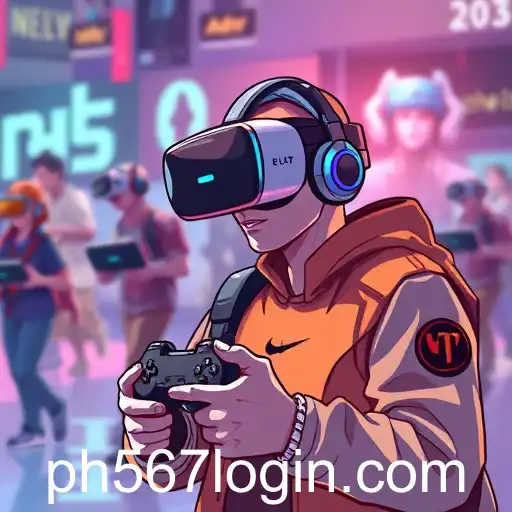
Exploring the dynamic shifts in the gaming landscape in 2025 through the lens of the popular gaming keyword 'ph567'
As we advance further into 2025, the gaming world is witnessing an unprecedented evolution marked by technological advancements and shifting community dynamics. The keyword 'ph567' has emerged as a significant player within the English game website ecosystem, signaling a trend that reflects both innovation and the collective heartbeat of the gaming community.
Central to this evolution is the seamless integration of virtual reality (VR) and augmented reality (AR) into mainstream gaming. Game developers are leveraging these technologies to create more immersive and interactive experiences, blurring the lines between digital and physical realms. This shift is not merely about enhancing graphics or gameplay but represents a broader movement towards redefining player engagement and interaction.
The impact of this transformation is multifaceted. On one hand, there's a surge in demand for high-performance hardware capable of supporting these advanced gaming environments. On the other, game designers are met with the challenge of inventing novel game mechanics that capitalize on these technological advancements while maintaining player interest and challenge.
Community-wise, the ever-growing popularity of online platforms has cultivated vibrant social hubs around shared gaming experiences. Here, 'ph567' serves as an anchor point for discussions and exchanges, both casual and critical, among players. This is fostering a sense of belonging and shared identity, transcending geographical boundaries. The collaborative nature of today's games, emphasized by real-time multiplayer modes and cooperative challenges, is further enhancing these community bonds, turning solitary gaming into a collective social experience.
Furthermore, economic implications cannot be overlooked. The expansion of digital marketplaces for in-game items and NFTs (Non-Fungible Tokens) linked to these games is creating new revenue streams for developers and players alike. This economic ecosystem is not only reshaping player investment and spending habits but is also establishing gaming as a viable economic sector worth close attention.
Ultimately, as we explore the ramifications of these shifts through forums and dedicated websites honoring keywords like 'ph567', it becomes clear that gaming is transforming not just as a pastime but as a multifaceted cultural phenomenon. It remains crucial for stakeholders to continue fostering inclusive and innovative environments to ensure that the gaming landscape remains dynamic and accessible to all.




